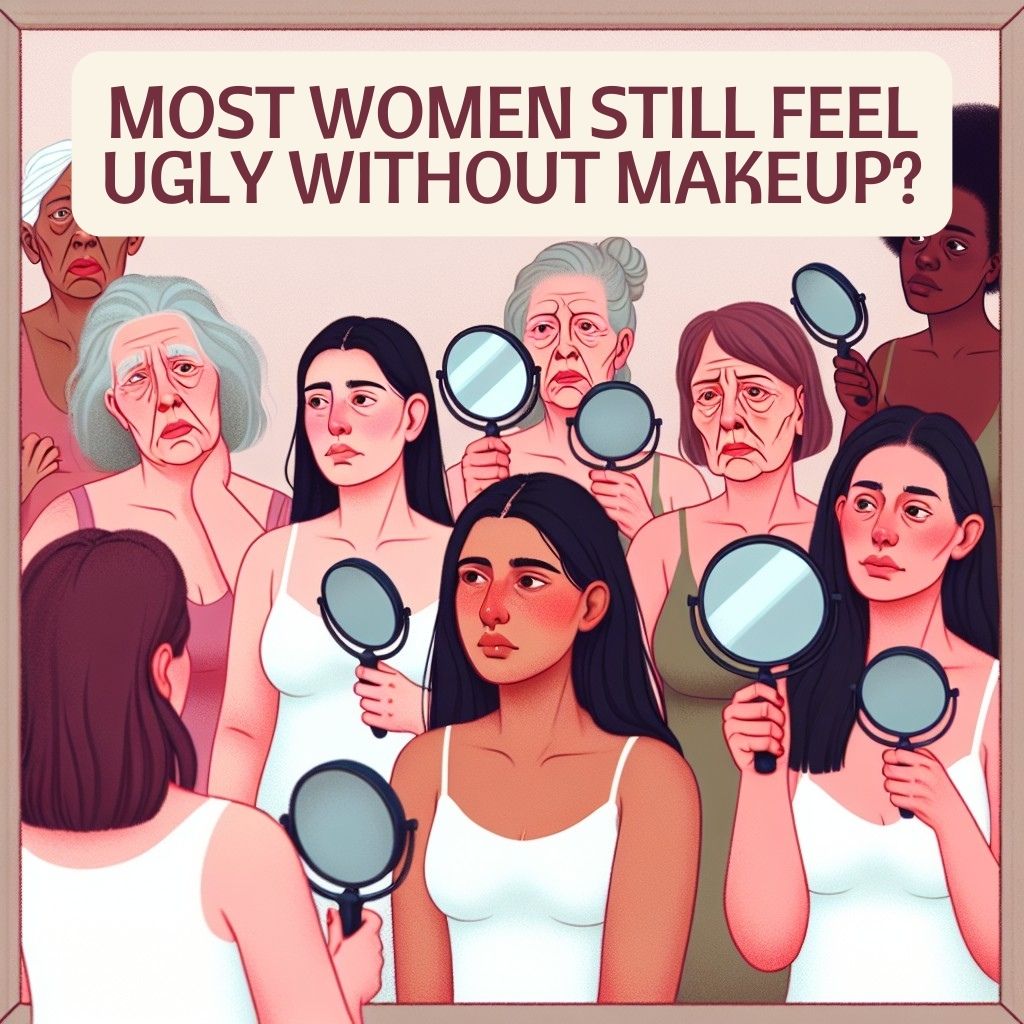Most women still feel ugly without makeup. It's a statement that resonates with many women around the world. In a society obsessed with beauty standards and perfection, it's no wonder that women often feel the need to enhance their appearance with makeup.
The pressure to look a certain way has always existed, but it's been exacerbated in recent years with the rise of social media and the constant exposure to heavily edited and filtered images of flawless-looking women. Women are bombarded with images of seemingly flawless skin, perfectly contoured faces, and voluminous lashes. These images can create unrealistic expectations and make women feel inadequate without makeup.
For many women, makeup is not just a tool to enhance their features; it's a form of self-expression and confidence booster. Applying makeup can be a transformative experience, allowing women to feel more confident and empowered. It can help them feel more put together and ready to face the world.
However, the reliance on makeup for self-esteem can be problematic. It perpetuates the notion that women need to conform to society's standards of beauty in order to feel attractive and accepted. This can lead to a never-ending cycle of feeling inadequate without makeup and constantly seeking validation from others.
It's important to recognize that beauty comes in all shapes, sizes, and forms. Makeup should be seen as a choice rather than a necessity. Women should feel beautiful with or without makeup, embracing their natural features and celebrating their individuality.
The notion that women need makeup to be beautiful is a societal construct that needs to be challenged. It's time to redefine beauty standards and promote self-acceptance. Women should be encouraged to embrace their natural beauty and feel confident without relying on makeup.
One way to achieve this is through promoting a positive body image. Media and advertising campaigns should feature diverse representations of beauty, showcasing women of different ages, sizes, and ethnicities. This can help to challenge the narrow definition of beauty and promote inclusivity.
Moreover, education and awareness are crucial in changing societal attitudes towards beauty. Young girls should be taught about self-love and acceptance from an early age. They should be encouraged to develop their own sense of style and beauty, rather than conforming to unrealistic ideals.
Additionally, it's important for women to prioritize self-care and practice self-love. Taking care of oneself, both physically and mentally, can boost confidence and overall well-being. Developing a healthy skincare routine, eating nutritious foods, and engaging in regular exercise can all contribute to feeling beautiful from the inside out.
Ultimately, the perception that most women still feel ugly without makeup can be challenged by shifting societal attitudes and promoting self-acceptance. Makeup should be seen as a form of self-expression rather than a necessity for beauty. Women should be empowered to embrace their natural features and feel confident in their own skin. Beauty comes in all forms, and it's time to celebrate diversity and redefine beauty standards.

Published on October 21, 2023
Most Women Still Feel Ugly Without Makeup
The perception that most women still feel ugly without makeup can be challenged by shifting societal attitudes and promoting self-acceptance
Share This Article
More Articles You Might Like
Discover More Content
Explore our collection of articles across various topics and categories. From cutting-edge technology insights to wellness wisdom, we curate the best stories to expand your horizons.
Article ID: 119